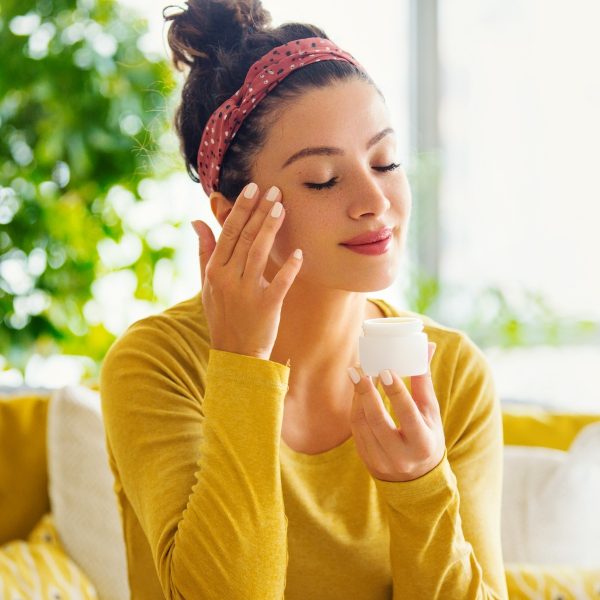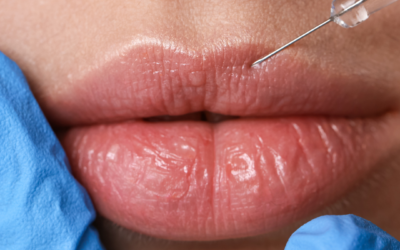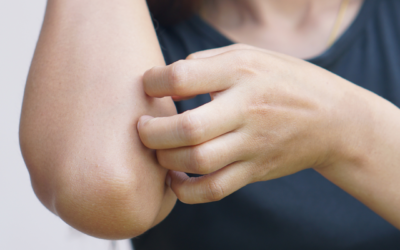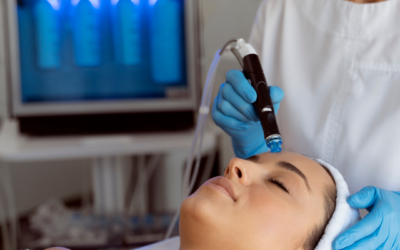
While every season doesn’t require a major shift in your skincare routine, it is best to adjust your skincare routine during seasons of major weather pattern changes. By this, we mean late spring and late fall. The biggest thing that happens during these times is the level of moisture in the air. It plays a large role in the type of products you use and how you care for your skin. In this article, we will call out a few key skincare items and how you should adjust them by these two seasons.
Moisturizer
According to Dr. Tanya Bhattacharya, board-certified dermatologist with Premier Dermatology, a Forefront Dermatology practice, “In summer, the humidity in the air keeps your skin moist, allowing you to get away with a lightweight moisturizer. In winter, the humidity levels drop, drying out your skin. To provide extra moisture and prevent moisture loss, a heavier moisturizer is required. Creams tend to be more moisturizing than lotions and are preferred for fall and winter. Apply generously both morning and night, especially after a shower. If you have extra-dry skin, keep a small container with you to reapply throughout the day. Lips can also get dry in the fall and winter. To prevent lip cracking or eczema, apply an ointment or balm regularly to your lips.”
Humidifier (not a skincare product, but a necessity)
One reason fall and winter are so harsh on our skin is because of the drop in humidity. This dryness gives way to dehydrated skin and inflammation. This is why eczema can also flare up at this time of year. To protect your skin against this, create your own humidity by using a humidifier. Humidifiers add more moisture to our homes, giving our skin relief from the dry climate and increasing its hydration.
Exfoliation and Showers
“While exfoliation is necessary year-round to remove dead skin cells and revitalize our pores, it is easy to over-exfoliate in the fall,” noted Dr. Bhattacharya. “With the lack of moisture in the air, our skin is prone to irritation and overstimulation. Exfoliate less and shorten your showers during fall. Try to avoid hot showers, as this can leave your skin dry.”
Retinol
Retinol is a Vitamin A product often used on the face and neck that helps diminish the appearance of brown spots caused by the summer sun as well as fine lines. Retinol works by speeding up the cellular turnover rate, which allows the healthier cells to work their way up to the surface faster. Dr. Bhattacharya noted, “Retinols can cause dryness that is worse in the fall and winter, so it is especially important to moisturize twice daily during these seasons. If you get irritation or dryness from retinol, decreasing the frequency can help alleviate this. It is also important to wait until your skin is completely dry before applying retinol, as applying retinol to damp skin can cause irritation.”
Sunscreen
“No matter the time of the year, sunscreen should be your go-to skincare basic,” noted Dr. Bhattacharya. “UV rays are still present even on cold and cloudy days. Sunscreen provides the best source of protection from the sun’s UV rays and the skin damage it can cause over time. Stick to a sunscreen SPF 30 or higher, and apply every morning. Some moisturizers and primers now contain this SPF 30, removing the additional step! Lastly, make sure you reapply sunscreen if you have any planned outdoor activities.”
Skin Struggles?
If you are struggling with skin issues and don’t know where to turn, the skin health experts at Forefront Dermatology are ready to help. To find the Forefront dermatologist nearest you, visit the locations page today.





